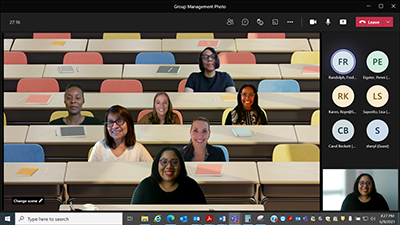San Francisco’s Department of Child Support Services Models Virtual Success in a Post-Pandemic World
By Carol KarimiKaren Roye has been watching over the Department of Child Support Services (SF DCSS) to ensure that its services have remained available to the people of City and County of San Francisco for the past 17 years.
When COVID-19 appeared, Roye and her team Carol Beckett, Penni Eigster, Sheryl Myers, and Freda Randolph Glenn were faced with a challenge—how to shelter-in-place while continuing to provide indispensable public services, such as establishing and enforcing child support, medical support, and establishing paternity for newborns and children.
